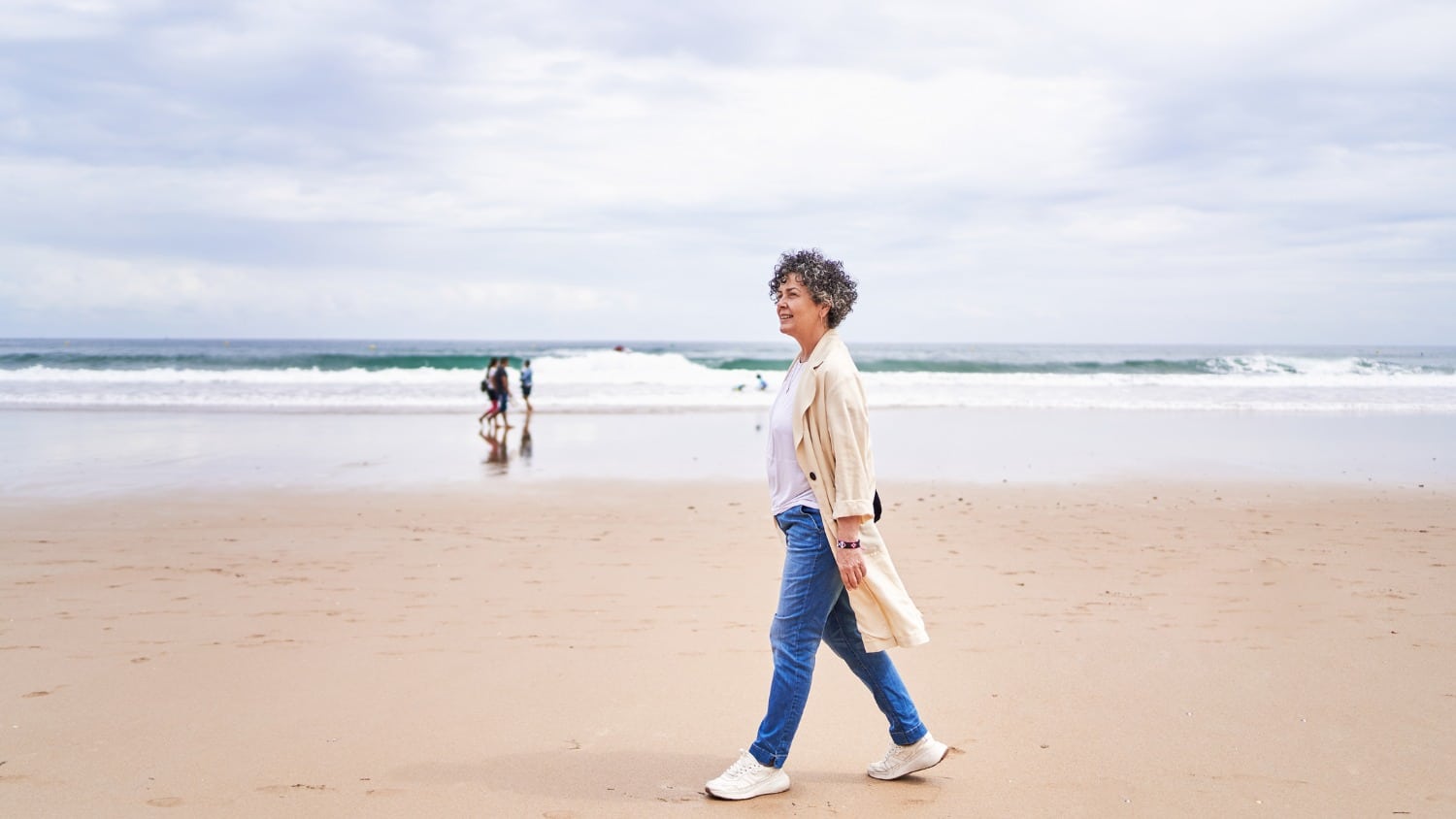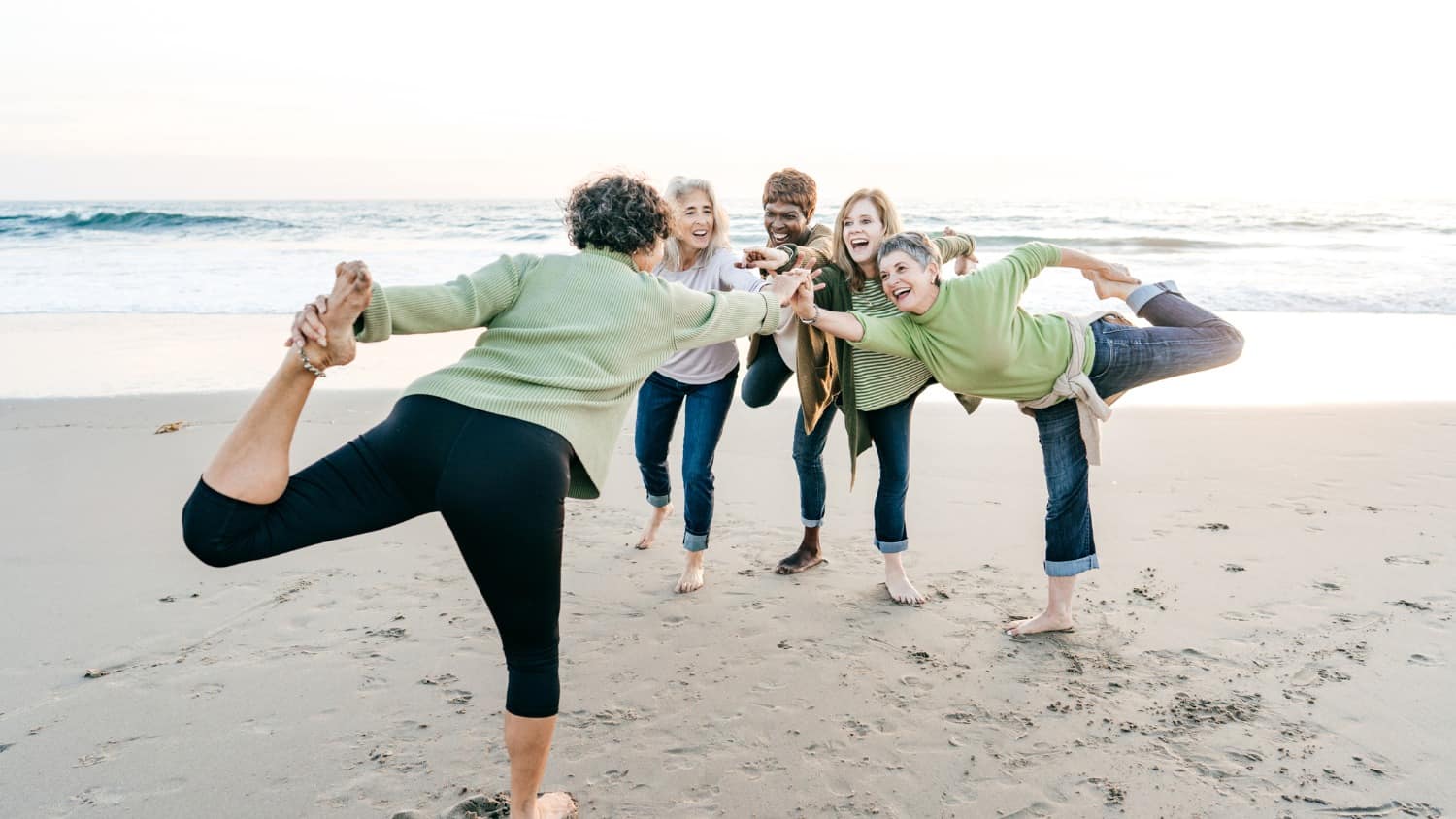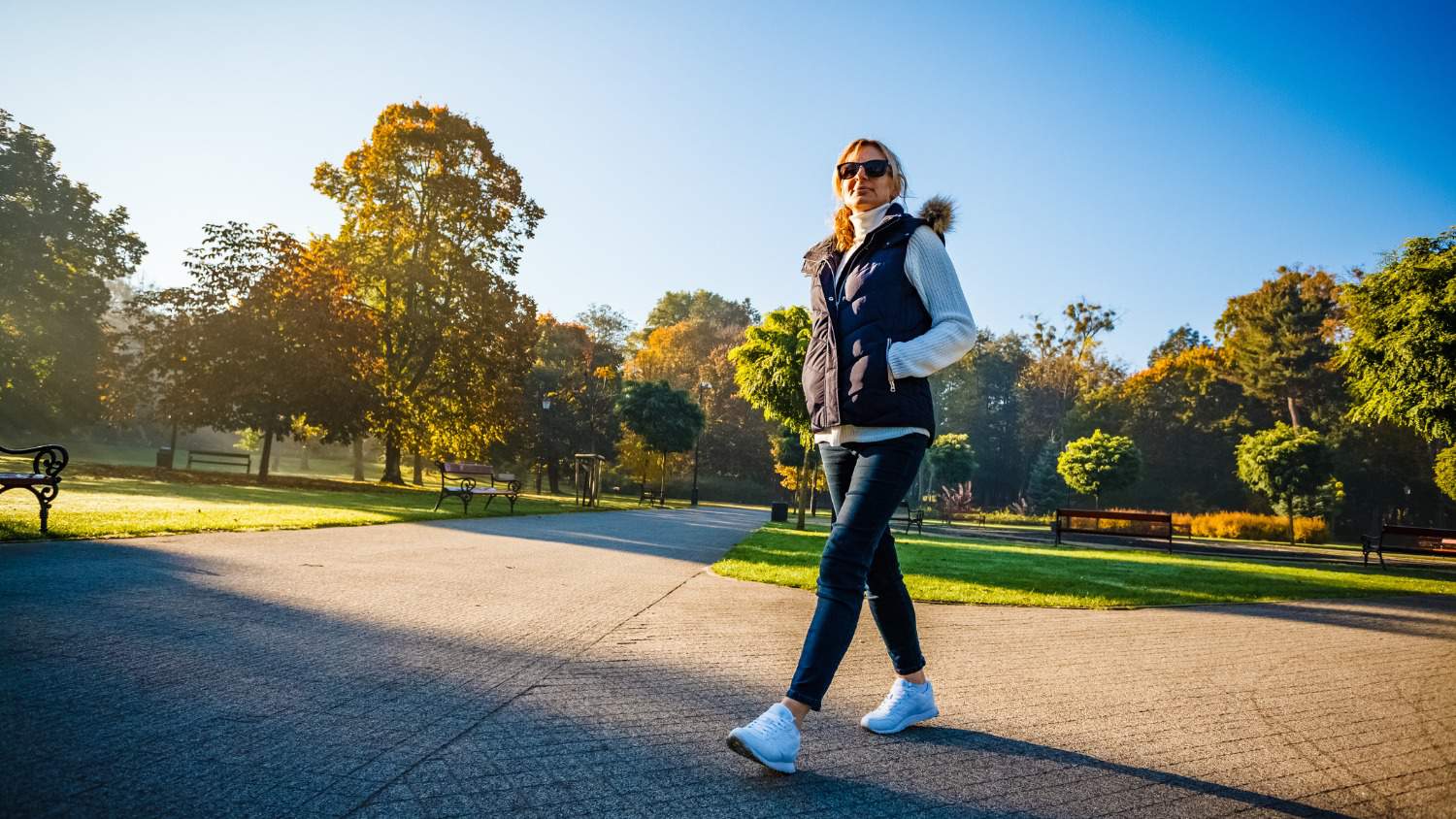
How (and Why) to Cultivate a Lifelong Relationship with Walking
I took my first steps when I was five months old and have been walking – mostly without even thinking about it – ever since. Probably you have, too. Some of us walk to clear our minds or boost our moods. Walking is preventive medicine for most of what ails us.
I only went out for a walk and … going out, I found, was really going in.
—John Muir
If you’re dealing with challenges such as joint pain, mobility issues or just finding the time to get out, let this article inspire you to take your next steps towards whole body health and wellness. Walking is a basic human movement that enhances all bodily functions, supports brain health and calms the mind. Besides that, walking is free!
If you’re already lacing up your walking shoes, just take a quick glance at this list of 5 reasons to take a walk before you head out the door.
- You can walk off aches and pains.
- Walking can enhance your therapy sessions.
- A regular walk might help sharpen your memory.
- Walking may stop you from brooding.
- You can learn something new.
I’m sure many of you could add to the above list of benefits and incentives for taking a walk.
Walking as Refuge
As an angsty teenager, I would storm out of the house and take long walks alone to decrease the tension of living in a home where loud fights and bitter silence between my parents were the norm. Our street ended in wetlands that led to a small lake. My heart and mind relaxed and settled as I roamed, or even sat still, listening to the wind and watching blackbirds flitting through the cattails.
I didn’t learn until much later that walking reduces stress as it produces endorphins. All I knew at the time was that spending time in nature was where I was able to hear my own thoughts and find myself.
Walking as Healing
After a near-fatal bout of bacterial meningitis six years ago, my main goal was to be able to walk again. In the hospital, my doctor whispered in my ear, “I hear you practice tai chi, get out of bed and do it.” I couldn’t walk to the bathroom alone, much less take one tai chi step, but he put the idea back in my head just days after I almost died.
After a month at home on bed rest with infusion therapy I was able to shuffle around the block with the help of a caregiver, first using a walker, then hiking poles. With any extra energy I tried to do tai chi. Two months later I was able to return to my tai chi school, only to sit and watch practice with tears running down my face.
I slowly reached my walking goal by improving my stamina in the only way I could: five minutes at a time.
Did you know that it’s just as good to take two or three short walks each day as it is to try to carve out the time for those 10,000 steps? Many of us already walk 3000-4000 steps daily while doing errands and housework. “Increasing step counts by even a few thousand strides on most days could be a sufficient and achievable goal” with measurable health benefits.
What If Walking Could Save Your Life?
Recent reports in the Guardian and the New York Times covered a study showing that if more of us took a short, daily walk many of us could live a little longer. The Guardian headline reads: “Walking just 11 minutes a day could stop 10% of early deaths, researchers find.”
Does knowing that make you want to get out and walk? Or was it just one more meaningless data point flowing by in an endless stream of overwhelming information? Perhaps it even made you feel a little guilty for not being able to find the time for an 11-minute walk every day!
Because, as biomechanist and walking advocate Katy Bowman says in response to reading that article in the Guardian, “‘Exercise now to not die later’ is the opposite of effective messaging. While movement is absolutely … ABSOLUTELY… an investment in your future (and boy do we have a ton of data to prove it), this idea isn’t enough to get people moving. Movement needs to make our lives better right now if we’re going to go through the hassle of making it happen. It must also make more than just our bodies perform better. It has to enrich other parts of our lives too.”
Most of us won’t decide to change our lives or our habits in response to a research study. Some of us find motivation in the deeper “why” and others are inspired by the practical “how.”
11 Ways That Walking Can Help You Feel Better Right Away
Listen to Bowman’s podcast “Eleven Feel-Good Reasons for an 11-minute walk” to spark your imagination and maybe get you out the door. Here’s her list of when, how and why to walk:
- A morning – on foot or on wheels – sunlight bath.
- A lullaby walk that helps you sleep better that night.
- A blood-sugar balancing walk.
- A couples therapy/mini date.
- Using a walk for some tech-free connection time with kids.
- The business meeting or Zoom session defrag.
- Walking as meditation.
- Something to do instead of scrolling on your phone for even a handful of minutes.
- A way to slow down and get some perspective by noticing more of the world around you.
- An opportunity to get to know the people nearby.
- A way to take your play on the go.
You could make it an even dozen reasons by listening to the podcast while you walk!
Celebrate Every Walk You Take
I’m definitely not sharing research or tips to try to guilt-trip you into moving more. Here’s my offer, based on the Tiny Habits model of behavioral change through bite-size actions that you can feel good about right away.
Celebrate the next time you take a walk, whether it’s from your bedroom to the bathroom in the middle of the night or when you stroll through the yard picking up dog poop. Walking to the mailbox on the street in front of your apartment counts, too. And all those steps you take while shopping for groceries.
You’re up. You’re moving. And you can feel good about that!
Moving well isn’t only defined by taking 10,000 steps a day or hiking the hardest trail as fast as you can. (Although if either one of those is your goal, please celebrate that, too!)
Moving well can be as simple as not stubbing your toe on the edge of the dresser in the middle of the night, not stepping in the poop, getting to the mailbox by way of the lawn instead of the sidewalk. You get to define what moving well means to you every day, in every way.
Let me remind you to move! Sign up for my occasional Aging Well newsletter and get a free guide to four simple movements to improve posture and feel stronger.
Let’s Have a Conversation:
Why do you walk? What are some of the benefits you’ve gained from walking? How has your walking changed over the years?
Tags Healthy Aging







At almost 61 years young I’ve been doing this for many many years I just did the half marathon in Louisville Kentucky 13.1 a little sore now but such a blessing but God gave us the legs to move and take care of our bodies because we only get one and yes, it is very relaxing and a blessing to see all the beautiful birds and the beautiful flowers and the beautiful trees in the different seasons. God bless everyone that reads this is.
I love walking in the mornings it gives me peace in mind and heart. Gives a pleasure being freely to see and collect the beautiful moments alone myself.
Walking is life! It is entertaining, invigorating, and calming. I walked my way through a lonely adolescence, challenging first marriage, and most recently COVID isolation. I walked to successfully slim down as an overweight teenager and again as a heavy post-menopausal adult. Now I walk to maintain my “ideal” weight while still eating hearty meals and frequent, mostly healthy snacks. I walk alone, with walking buddies, and with my dogs. I walk a lot!
I walk for all the above mentioned reasons! Even if it’s just a slow 1/2 hour walk due to chronic pain, at least I got up, got out & did it! Every day without fail.
Daily walking is a dedicated movement practice. Glad you get out there on the regular.